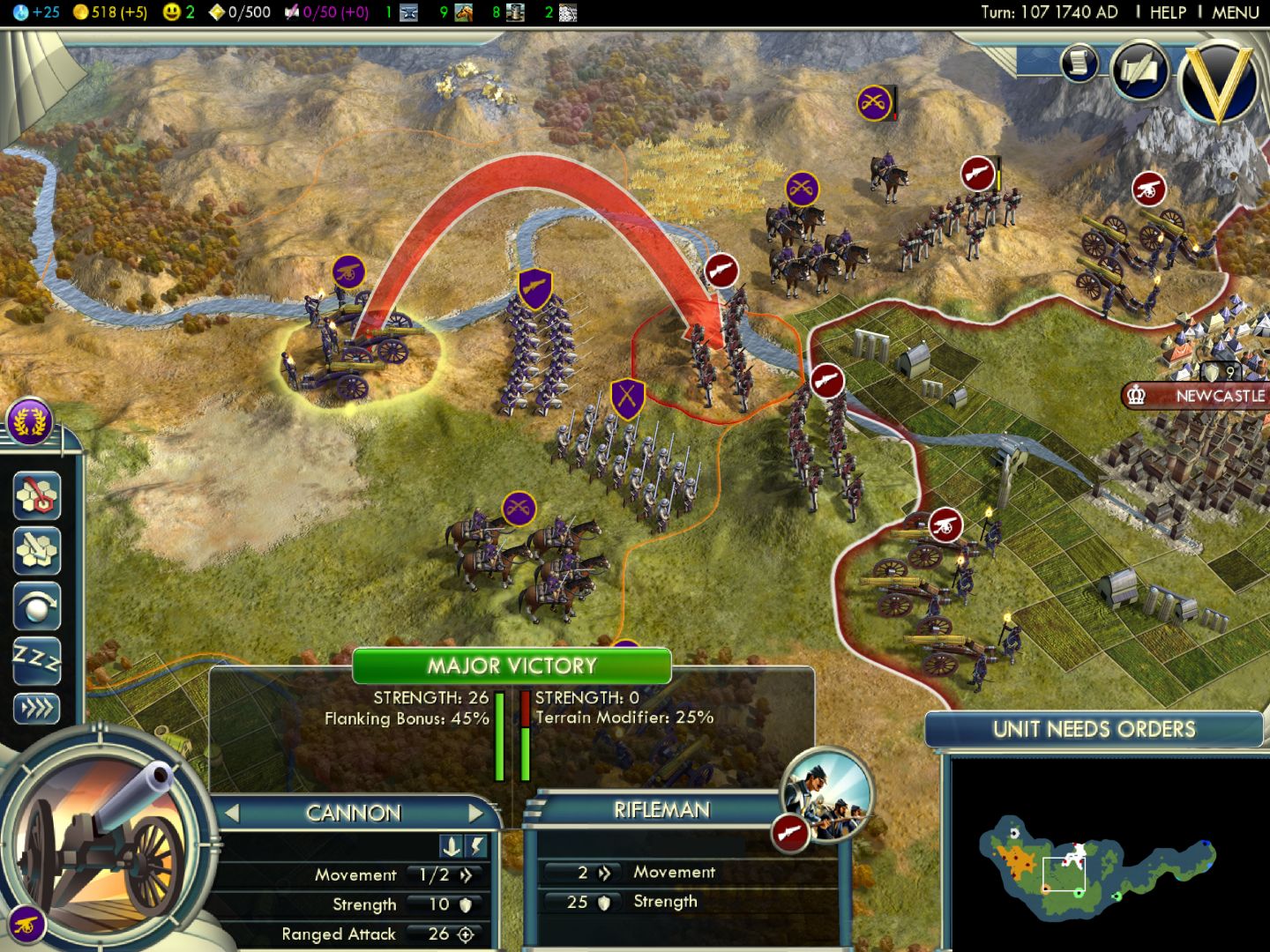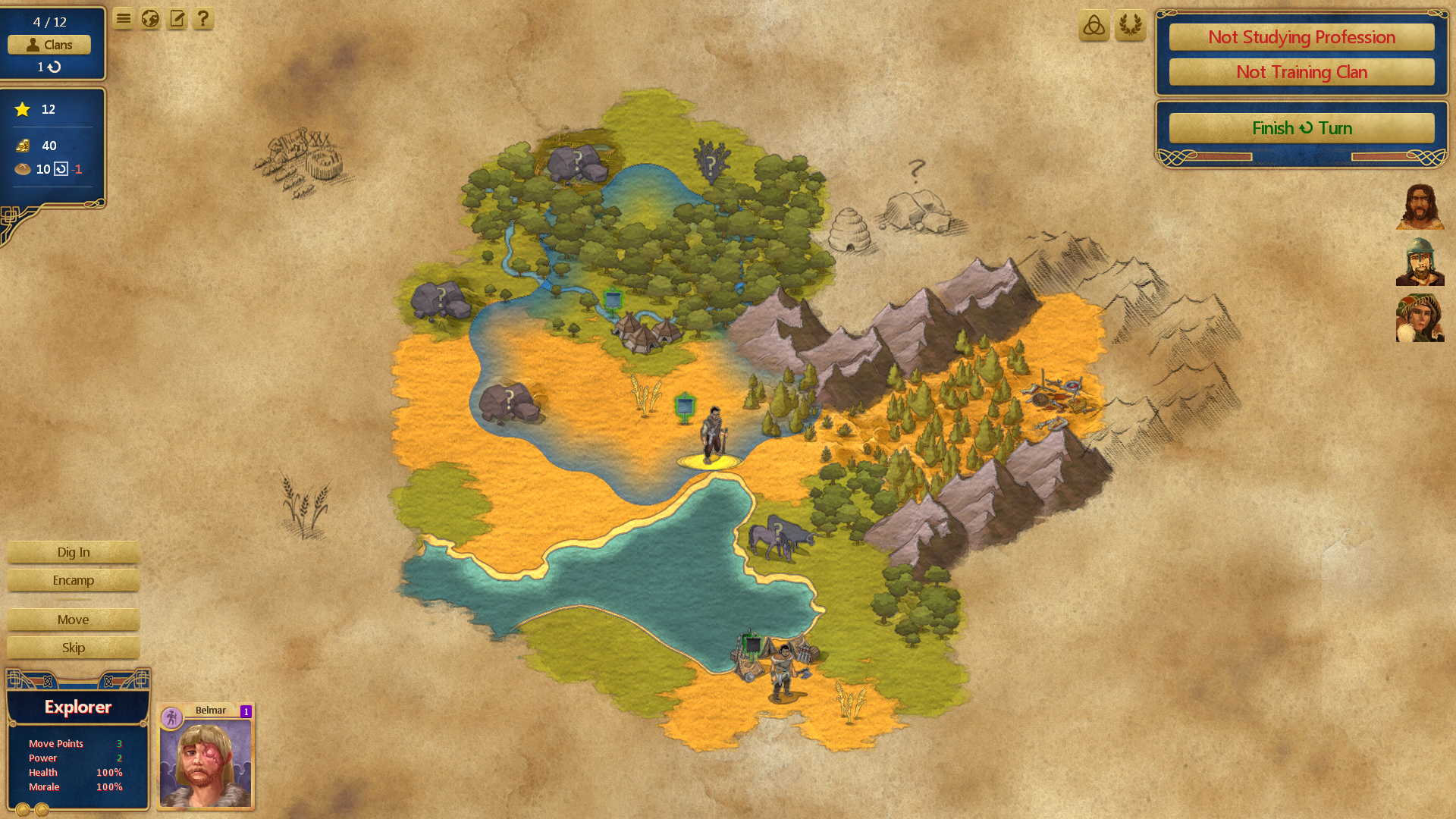Jon Shafer’s been at the gates for years.
The veteran strategy game designer released Jon Shafer’s At the Gates in Steam Early Access on January 23. That Shafer’s first independent game (this one is about setting up a civilization among the crumbling remains of the Roman Empire) came at all is remarkable. He ran a Kickstarter for it in 2013, with an eye for a 2014 release date. This was the debut of his Conifer Studios. That date came and passed, and he took a gig at Paradox Interactive in 2017 before leaving to work again on At the Gates.
Now, At the Gates isn’t the first nor the last indie game to fall behind its original release date. But the story behind Shafer’s journey is compelling, and he shared it in a remarkable blog post in January. His experience is one that applies beyond game development (though it does have plenty for designers and devs to learn from, too). It’s one that resonates with me as well. I know what it’s like struggle with weight, with mental health.
I just had to chat with the Civilization V lead designer about it. In our chat, we talked about our health, the lessons you learn about improving your health, and the little things Shafer discovered about making an indie strategy game — and how to let go of your ambitions and obsessions in the design docs in your head.
June 5th: The AI Audit in NYC
Join us next week in NYC to engage with top executive leaders, delving into strategies for auditing AI models to ensure fairness, optimal performance, and ethical compliance across diverse organizations. Secure your attendance for this exclusive invite-only event.
Here is an edited transcript of our interview.
Personal journey

Above: Jon Shafer, founder of Conifer Games and lead designer of At the Gates.
GamesBeat: I’ve gone through [your] blog and some of the updates. How are you today?
Jon Shafer: [Laughs] I’m doing really good, honestly. That wasn’t always the case. I think that’s often true for game developers. It’s a pretty rough job, really. Everybody wants to do it, but the reality is very difficult. And that’s especially true when you’re on your own like I have been, now for almost seven years. It’s been a pretty hard road, but I’m doing really good right now. I’m excited for release. I’m happy and healthy, and I have a ton of energy. I can honestly say things are really good.
GamesBeat: When it comes to your health, was it the process of game development and your work that did [ruin] your health? Or was it something else that resulted in you not being healthy?
Shafer: Well, I think a lot of it was driven by my desire just to make something amazing. I think this is true for probably every independent game developer, but for me, ever since I was young, I had this energy and this drive to do something and make it perfect. Which isn’t the healthiest thing in itself. That can develop in a lot of dangerous ways as well — if you don’t recognize that in yourself and work to address it. I was driven in a way that wasn’t healthy. I worked every day for 239 days to finish up Civ V, and that was before I left and started my own company. I’ve always had this feature and flaw in me, and it’s something I’ve learned how to [manage] a lot better and, in particular, how I spend my time. It’s something that I think stemmed from just who I am originally, and it probably would have been similar if I were in games or something else. I have something in me that says keep pushing more.
GamesBeat: At what point did you learn you had to change that or find a way to cope with it?
Shafer: I was in a situation where everything had fallen apart. I hadn’t worked on the game in a while. I wasn’t [answering] emails or paying bills or talking to people or anything. Everything just completely shut down. I reached a point where there was no way to look at the situation and say, “This is OK.” It just took a lot of hard work from that place and around that place to get back to being a person…. For a long time, for multiple years, I didn’t do — I couldn’t do anything. It’s hard to come back from. It’s something I did do, but it was tough.
GamesBeat: Was there anyone to help you with this? Or was this something that you came to realize yourself, and you pulled yourself out of it?
Shafer: I’d say it was a mix. I had some friends who had helped out. I found a new partner here in Sweden after I moved to Sweden. She was a big part of that. I was motivated in part just to try and put things back together because when you care about somebody, you want to do that. It wasn’t something I shared a whole lot about, just because in a similar way to being a driven person, I’ve also always been a person that doesn’t really share much about themselves. There’s something to do, work to do. It’s a distraction. It’s not important. It’s not necessary. I could be pretty ruthless in that sense. That’s also a thing I’ve learned about myself, that it’s not healthy, even if your only goal is just productivity and efficiency and performance. You can’t sustain that for very long before that lack of balance catches up with you. You can look at people like Steve Jobs, who did it for a while, and obviously, he died very young. I have no doubt that a contributing factor to that was just the way he lived and the way he worked. You have to recognize that you need to have that balance. You need to be able to connect with other people. That’s what people do.
Lessons learned

Above: Jon Shafer is the lead designer of Civilization V, and one of his innovations for the series is hex maps and killing the unit stacks of previous Civilizations.
GamesBeat: It’s easy to say, what’s the biggest lesson you’ve learned from this seven-year journey of going on your own and working on At the Gates? But to me, it feels like it’s not just one lesson. It’s a group of lessons.
Shafer: Oh, for sure. Many, many hundreds.
GamesBeat: When it comes to your focus, did you learn that you need team members around you to help you with that? Or did you learn that this is just something that internally you had to work on?
Shafer: For me, it was all internal. Working — I was in a work environment for a short period of time, and that was definitely engaging and energizing, but in terms of productivity, I tend to be distracted very easily. Just being in an environment with other people is inherently distracting. It’s tough when you’re trying to do a lot of very focused work — programming or technical writing. There’s lots of elements of game development that require a lot of focus. For me, it was optimizing my routine, optimizing my environment, finding what worked for me and what didn’t.
I found that establishing a routine where I do the same thing every morning — I start with coffee and a spoonful of peanut butter for a small breakfast. I study Swedish for a bit. I go to the gym basically every day. And then, usually nothing too intense. Just riding the exercise bike for about 30 minutes. That gets my energy up. It makes me feel better the rest of the day. I come back and have a salad for lunch pretty much every day. And then, I take a shower, and I’m good to go. It’s 1 in the afternoon already, but I have so much energy I can dedicate to whatever I want.
During that time in the morning, I’ll be thinking about what I should be doing that day, planning out what’s important. And then in the afternoon, I can take those learnings and those plans and apply them. Every day is its own little project. That’s probably the biggest lesson among the many that I’ve learned. You need to have a plan. You need to be looking forward. You need to have a road map to accomplish whatever you’re trying to do. You don’t just end up doing things accidentally. You have to add a lot of intention, especially if you’re taking on big challenges like making a game or becoming healthy from a place where you were very much not. That’s probably the thing that I’ve come away with the most. It’s something I expect to stick with. I’m going to have this kind of routine, or a similar routine, that I keep tweaking for a very long time. That’s been a huge factor in making things happen…. I was just talking with my girlfriend the other day about — everybody tells you you should eat healthier and exercise, and usually, it comes from some kind of moralistic perspective. You should do this, you know. But the reality is, when you’re able to make that work and build that into your routine, you find that you feel so much better. You have so much energy. Who doesn’t want to feel good and have energy to do stuff? That’s the biggest draw for me, honestly. Maybe it still indicates that I need to be a bit more balanced, but … even if you want to be that brutal about what the criteria are that you’re looking for — you feel good, and you can get lots of stuff done — that sounds pretty good. I’ll make that deal. I’ve felt horrible, and I’ve felt amazing. There’s definitely a real difference there [laughs].
GamesBeat: In your post, you talked a couple times about you and being ambitious. Have you learned that you need to rein in that ambition yourself, or do you need a colleague or collaborator to help you rein in your ambitions?
Shafer: I think it’s something I need to do. I’ve always been the kind of person that, if somebody tells me what to do or provides advice even in a loving way, it’s something I’ll think about, but a lot of how we spend our time that we have in our lives [comes] down to what our values are. What’s important to invest this time in? For some people, it’s family. For some people, it’s charity and giving. For some people, it’s money or climbing the corporate ladder, all sorts of different things. For me, I want to make things that are great. I don’t think there’s any way to get away from that. If someone says, “Hey, you should spend less time to be more healthy and make something a little less great,” I’m going to say, “Eh, thank you, I appreciate where you’re coming from, but come on.” It’s something that I need to push myself on. And it’s something that I’ve gotten so much better at because I do recognize the fact that if I’m just so focused all the time, it’s not good for me or the project or my ability to enjoy the time that I do spend on things. It’s something that I have to constantly push myself on, but it’s something that, like a lot of other things — there are days that I’m not super excited about going to the gym, but I do it anyway. Sometimes, you have to push yourself and say, “This is the right thing to do. You know it. Stick to it.”

Above: Like many other strategy games, At the Gates starts small as you expand your territory.
GamesBeat: When it comes to what you’ve learned about yourself and about game development, are you going to stick to game development, or are you going to try something else?
Shafer: I’m definitely going to stick with games. It’s something where I really feel like I’m hitting my stride now, in a way that I never did before. I’ve been in games now for almost 14 years. That’s a pretty long career in terms of game development, but for me, I feel like this is the point at which I’m finally figuring things out. A lot of my early career was driven based on that energy and that passion, but it took time for my ability to analyze and my ability to plan and my ability to see the big picture to come in and complement that. It’s something that I plan on taking advantage of now. I’m really excited about a lot of the things that I learned about this game — not just in terms of big broad lessons but specific mechanical things that I now know work, that I didn’t know before. Or that I know don’t work that I tried. These are all things that you keep with you, that become added to your stockpile of wisdom. That’s not something that I want to step away from yet. I’m sure that will happen eventually. There’s just only so many games I think each of us has. I think I have at least a few more big ones.
GamesBeat: Talking about wisdom, is that something you felt was lacking when you started this process?
Shafer: Absolutely. I hate to point any fingers at age or youth, but in a lot of ways — I started in games when I was 19. I was named the lead on Civ V when I was 21. I remember doing that magazine with you. You probably remember how young I looked. When you’re 21, you have 21 years of experience. When you’re 33, you have 33 years of experience. That’s just more. It doesn’t mean that you’re always the average 33 year old who’s always going to be better than the average 21 year old, but you have different tools. You have tools that are just not possible for a person less experienced to have. … It comes down to experience. If you have more time to experience things, that’s going to add up. A lot of it is making mistakes and seeing how that goes. This is one of the most important elements of leadership. Until you’ve had to lead and seen how your approach works, or not, you will have a hard time with that. But you can become better because we all learn. If we have the interest in learning, we absolutely can. There’s so much to be gained from looking back at the things we’ve done before and trying to take lessons from them. It’s really valuable. It’s something — I spend some time every day now just thinking about the decisions I’ve made. Not all of them every day but specific ones that might be particularly contextually appropriate. If I’m working on the diplomacy system, I think about, OK, how did I design that back in Civ V? How did that go? What worked and what didn’t? You can’t just throw that stuff away. That’s valuable information. It takes time and energy to process it. But it is valuable. It’s how we get better at what we do, whatever that thing is.
Independent attitude
GamesBeat: You’ve now worked at three of the larger dev houses for strategy games. You’ve worked independent. Are you going to remain independent?
Shafer: I’m going to remain independent. I think that’s a lot of where the lessons I’ve learned have borne some fruit. Even in the past couple of months, I’ve learned so much about how to get videos and articles out there. What time of day you want to release them? What do you want to emphasize? How do you prioritize what you say in that first paragraph of something? All these things that you never think about until you’re in the position where it matters. Oh, yeah, I have to write a press release, don’t I? What should that say? If you’re not experienced enough, maybe you just copy the format that everybody else does, and you don’t really think about it much, or you think about it as much as you can, but you don’t have the experience to draw on. Maybe I should emphasize this especially. It’s not what other games do, but it makes sense for this game. Taking a lot of those kinds of lessons is something I’m excited about as well. It’s building a business in addition to making games. Going forward, I’m definitely going to be independent from here on out, and as part of that, I’m looking to eventually build a bigger team and make some bigger games, at least bigger than one person with some friends and contractors anyway. Nothing too huge. I’m not looking to be on the stock market.
